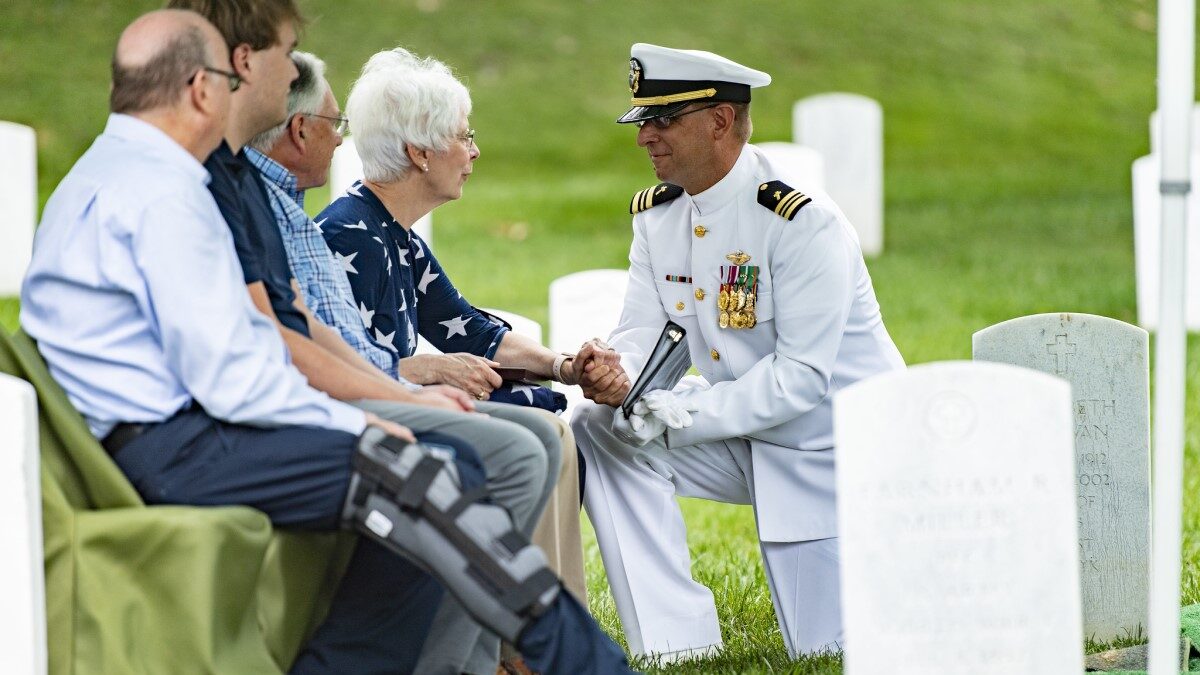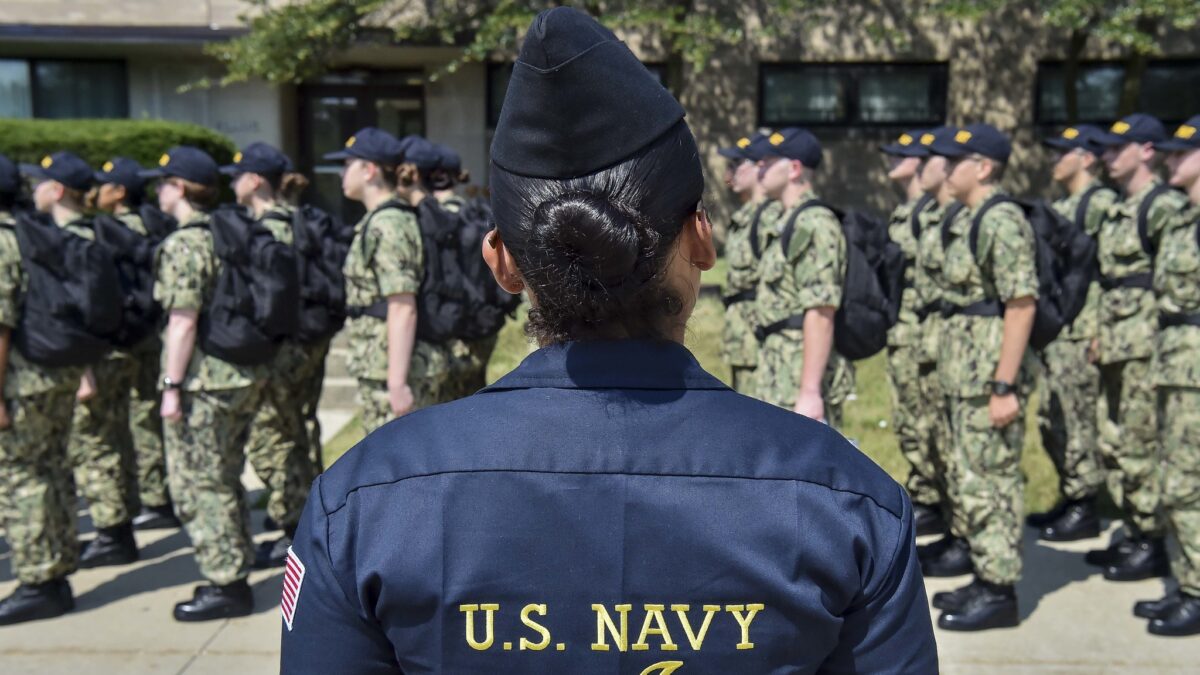
A military wife once told my mom that the only families who understand deployments are other military families. Everyone else tries to help, she said, but they just don’t understand how.
But I’ve had people, time and time again, offer to help our little family when my husband leaves on military trips. I see their hearts, their intentions. I know it can be difficult to say exactly what you might need: it feels awkward and demanding. But perhaps the best thing a military family can do is to share ways that they’ve been particularly blessed in the past, and to open up about their need for support.
I’ve talked to military families whose spouses and parents have been gone over birthdays and during holidays. I’ve known military spouses who have missed births and deaths during their deployments. Months pass, children grow—begin walking, lose teeth, graduate from high school—while dad or mom is away. It’s tough on kids. It’s tough on parents.
We all want to help. The question is, how? Here are some insights and tips from moms who have been through it all. Hopefully, their insights will help you next time you have a friend or loved one going through a deployment.
1. Be Respectful of a Family’s Space Pre-Deployment
“The gear-up before deployment is usually chaotic and hectic and everyone wants a piece of the deploying service member,” notes mom and Army wife Rebecca Bahret. But when a spouse is leaving for months, or a year, “more than anything they want to spend quality time with their immediate family.”
People kindly want to host the family, or take them out to dinner. Though the effort is appreciated, Bahret notes, it can get overwhelming. “We don’t want to spend these precious few weeks we have left doing a social tour, we just want to spend time at our house in our PJs playing Uno together for hours,” she said. “Be respectful of that, please.”
2. Establish a Helping Routine
Once a spouse has left, things can get lonely fast. (This is where Sherri Francescon, whose husband is in the U.S. Marine Corps, recommends using email and social media to stay connected.) Moms or dads with kids may also feel frenzied and overwhelmed, as they juggle work commitments alongside their children’s social and academic schedule. Many are also dealing with emotional anxiety—especially if their spouse has been deployed to a war zone.
Francescon suggests that friends and family members offer routine help, so that a parent feels less alone and has something to look forward to. “Invite the entire family of the deployed service member over for a play date or dinner,” she suggests. “You may consider doing this routinely—for example, the second Wednesday of every month during the deployment. This gets the family out of their home and gives them something to look forward to each month, which makes the time go by faster.”
While a blanket “call me if you need anything is nice,” notes Bahret, “military spouses are typically proud and stubborn and not likely to ask for help.” Specificity—and intentionality—go a long way toward helping families with deployed spouses. Ask if you can stop by on Saturday afternoon and take the kids to the park, or whether you can drop off dinner on a weekday night.
3. Send a Care Package to Soldiers—Or to Their Family
Francescon suggests: “Ask the spouse of the deployed service member if you can send a care package to his or her loved one. Or organize a group to put together care packages for the deployed service member’s entire unit. Dear friends did this for me multiple times and I loved it…and so did my husband.”
Francescon herself has put together multiple care packages for her husband over the years, trying to make them a regular part of her family’s routine. “I did not feel he was that far away if I was shopping for him,” she said. “Each deployment I sent my husband one to two care packages a week.” In addition to putting together their own care package, friends can ask to contribute items to a spouse’s package—or help pay for shipping, which can get expensive after a while.
But everybody loves care packages. Bahret wrote an article two years ago sharing deployment advice with other families, and noted that sometimes, a homebound spouse may appreciate a little mail, too.
“If she’s lucky, she’ll get the irregular, often sandy letter back, but most days the mailbox brings the usual bills instead,” U.S.M.C. wife and mother Raleigh-Elizabeth told Bahret. “So send her a treat — some cookies, a DVD, hot chocolate mix, fuzzy socks — something simple that says you’re thinking about her will make her day.”
4. Babysit While Mom (Or Dad) Runs an Errand
Bahret also suggests setting up a monthly “Time Train” for a homebound military spouse. Friends willing to participate pick a given month, then sign up to watch the kids for a couple of hours while mom or dad have some time to themselves.
“If 10 friends each offer two hours of their time,” she notes, “The homebound spouse can make it through a typical deployment with sanity-saving alone time to look forward to monthly.”
6. Provide Them a Weekend Away
Friends or family can offer an open invitation for a military family to visit, or can send an invitation to stay for a longer period of time. This can take pressure and stress off the homebound parent: it gives them a weekend in which no meals or playdates have to be planned, and no driving has to be done.
7. Give Tired Moms (Or Dads) a Night Out
The ability to go to the grocery store sans children is exciting, no doubt. But sometimes, a mom or dad might enjoy the opportunity to have dinner with friends, or to attend a show or movie.
On the same note, if a military spouse does not have children, it’s worth trying to include them in your plans whenever possible. They don’t automatically have someone to hang out with on a Friday night; they may not have someone to watch the Oscars with, or someone to spend Thanksgiving with.
8. Remember: It’s More Than a Business Trip
While some deployed parents are in a safe area, others are in war zones. Regardless, their job includes a readiness to put oneself in harm’s way. That can foster a stress and fear that resides in the everyday life of a military family. It wears on children, and tears at a spouse’s peace of mind.
Francescon suggests purchasing a Daddy Doll for each child you know who is going through a deployment. This can help children have a tangible sense of their parents’ closeness, even when a parent is far away.
Francescon also urges friends and family not to ring the doorbell if you are visiting a spouse of a deployed service member. Doorbells often signal the worst of news to a military spouse. “The sound of the doorbell always made my heart stop,” she said.
There are moments when a military family is going to question why they’re going through the sacrifice, the pain of separation, and the fears of danger in order to brave a deployment. In these cases, interviewees told me, a simple thank you offers a world of comfort. The knowledge that you understand their sacrifice, and their spouse’s sacrifice, fosters encouragement and courage.
9. Commit For the Long Haul
It’s easy to remember someone’s going through a hard time in the first couple weeks after their spouse deploys. But what about in month three? Or nine? Or twelve?
“I know people see me at month one of a separation. At month eight, I wonder if I am invisible,” Army wife Melissa told Bahret. There’s an initial push of help, and then assistance likely falls by the wayside, right when a family needs support most. In many ways, consistency and a routine helps dispel this dilemma. But it’s worth saying again: intentionality makes a world of difference.
10. Offer Emotional Support.
The first time my husband left on a deployment, my grandmother died. On another one of his military trips, our six-week-old daughter got sick, and ended up in the hospital on an oxygen machine.
These moments are difficult. You crave the comfort and support of your spouse. You desperately desire for them to hold you, to help you make important decisions, to walk you through the tough moments in every day. But you don’t have them.
But people stepped up. After my grandmother died, one friend brought me two huge containers of soup and a loaf of cinnamon bread. Little did she know: my grandmother used to love making me cinnamon toast growing up. When our baby girl was sick in the hospital, my mother-in-law spent two days with me, bringing food and snacks and much-needed company. She helped dispel my fears, and encouraged me to get out of the hospital room for some fresh air while she held my sick baby girl.
Marriage gives us a life partner—someone with whom we can face the great tempests of life with courage and comfort. A deployment removes that safeguard, and can make us feel vulnerable and alone. But where friends and family can step up to support, a military spouse will find the love, acknowledgment, and relief they need.
We Are Thankful For Your Service
Sometimes it’s hard to communicate these needs. It leaves one feeling vulnerable and raw. It’s easier to say, “I’m fine.” But those who show up anyway—who extend an arm, a comforting word, a cup of soup (or Chipotle burrito)—will discover that the words “I’m fine” are often a brave front, one we keep up in an effort to disguise emotional or physical exhaustion.
We love our spouses, and are incredibly proud of them. We don’t want to make our everyday difficulties sound bigger or more important than their sacrifices. We want to applaud what they do, what they suffer in order to make our country a safer, better place.
But it’s tough losing the comfort and love of your spouse for months at a time. And I know military spouses are thankful for every single loving smile and helping hand. Thank you for helping us, for caring when we’re hurting and lonely and fearful for the safety of our loved ones. Thank you for being there when we need you most.









